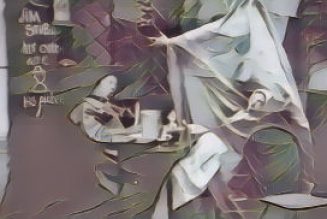Ideas are powerful.
What you believe about yourself and your world determines to a large extent the kinds of experiences you will have and how you will interpret them.
The ideas you accept as true are your beliefs.
Beliefs act like a filter through which information passes before it reaches you.
The belief filter acts so strongly that it usually allows in only information you already believe to be true.
Contradictory information is either ignored, explained away, or rejected.
What you decide to accept or reject as your beliefs will literally create your world.
If you believe you cannot be a certain kind of person, then you won’t.
If you believe you must have only certain types of relationships, then you will never experience others.
If you think you can’t go to college or learn a skill, then you never will.
If you believe that God is one way, then you will never experience God any other way.
If you think that certain topics and questions are forbidden, then you will never explore them.
One of our favourite sayings about beliefs comes from Henry Ford, who said, “Whether you think you can, or whether you think you can’t, you’re right!”
Power such as this is awesome. It mobilizes nations, creates religions, begins and ends wars, and defines new civilizations.
On a more mundane level, it can even influence the kind of toothpaste you buy!
Advertisers understand the power of getting you to believe what they want you to believe.
So do politicians, governments, and religious leaders.
Beliefs set a vision around which people take action.
What is your vision?
What kind of life do you want to live?
What kind of world do you want to create?
What beliefs are best going to get you there?
These questions are not annoyances to rush through so you can start “being a Pagan.”
These questions are the heart of the matter.
They are so central, in fact, that the first principle of Paganism addresses the issue of beliefs.
This principle states,“You are responsible for the beliefs you choose to adopt.”
Because beliefs set a vision around which people act, the second principle flows directly from the first states that,
“You are responsible for your actions and your spiritual and personal development.”
These two principles, then, are a beginning point for spiritual and personal growth.
They address the two fundamental issues of responsibility and empowerment.
Your empowerment begins with an acknowledgment that you are able to choose those very templates, or beliefs, around which you build your world, starting with your self-image and moving on to your relationships, culture, politics, and religion.
Without a sense that you are in control of choosing those ideas you adopt as your own, or that choice is even possible, you may not begin to move forward in your development.
You may believe you are stuck or trapped in the way things are, or in the way you have always been.
You may believe you are not capable of growing or changing.
You may believe growth is possible but is dependent on something outside yourself, such as a holy text, a spiritual practice, or a teacher.
We suggest that the journey of self-discovery and development as a Paganbegins by becoming aware of the power of belief, by acknowledging your power to choose the ideas you will accept as true, by accepting your responsibility for that choice, and by taking responsibility for how you act on your beliefs.








